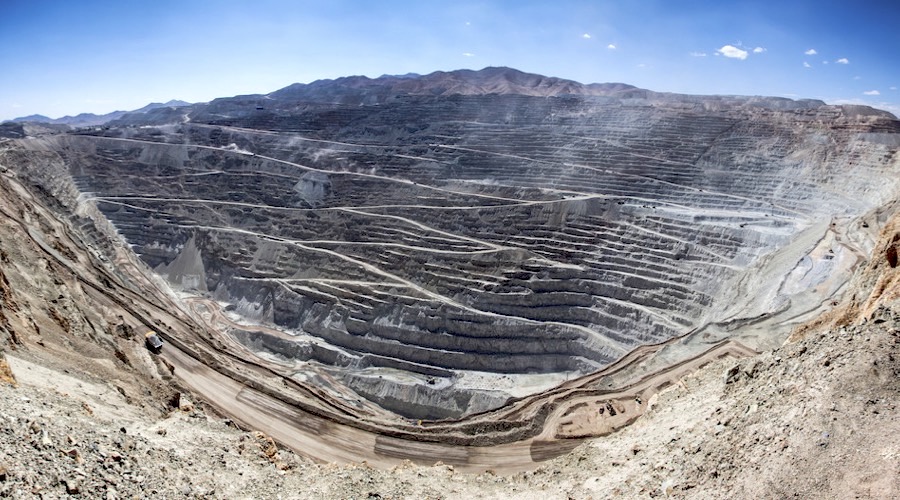Codelco’s Chuquicamata copper mine hit by strike, blockage

Unionized workers at Codelco’s Chuquicamata copper mine in Chile downed tools on Monday saying they had “exhausted” all instances for dialogue with management.
Access to Chuquicamata, the state miner’s second largest copper operation by size, has been blocked since early hours, as unions No. 1, 2, and 3, as well as Antofagasta Union No. 1 demand Codelco to re-hire two workers that were “unjustified laid off” earlier this year, local radio station Bio Bio reports (in Spanish).
The strike is also due partly to protest Codelco’s plans to transition the existing open pit to an underground mine, which would eliminate up to 4,500 jobs, José Mardones, leader of Union No.3, said in a statement.
Unions protest Codelco’s plans to transition the existing open pit to an underground mine, which would eliminate thousands of jobs.
Relations between Codelco and its unions at Chuquicamata, arguably history’s most important copper mine, and one on which Chile’s current prosperity was built, soured in the past few months as the company revealed cost-cutting plans.
The century-old operation is running out of profitable ore and has to switch to a modern underground operation. The new mine, this time underground, will need 1,700 fewer workers, the company has said, partly because conveyor belts will replace trucks.
Unions at the mine also threatened to turn the strike into an indefinite one if Codelco lets go any person as a result of the current stoppage.
Chilean labour laws have changed recently – in April 2017 – and the ramifications are not fully understood. What is clear is that unions are empowered and this has influenced negotiations. They are better prepared from a legal and economic point of view.
While copper prices dropped to a 9-month-low last week, and have extended loses in the past few days, they are still higher than during the previous negotiations, which puts more pressure on companies to reach an early solution.
Last year Chuquicamata produced 330,900 tonnes of copper, out of Codelco’s total of 1.734 million tonnes.
{{ commodity.name }}
{{ post.title }}
{{ post.date }}




Comments